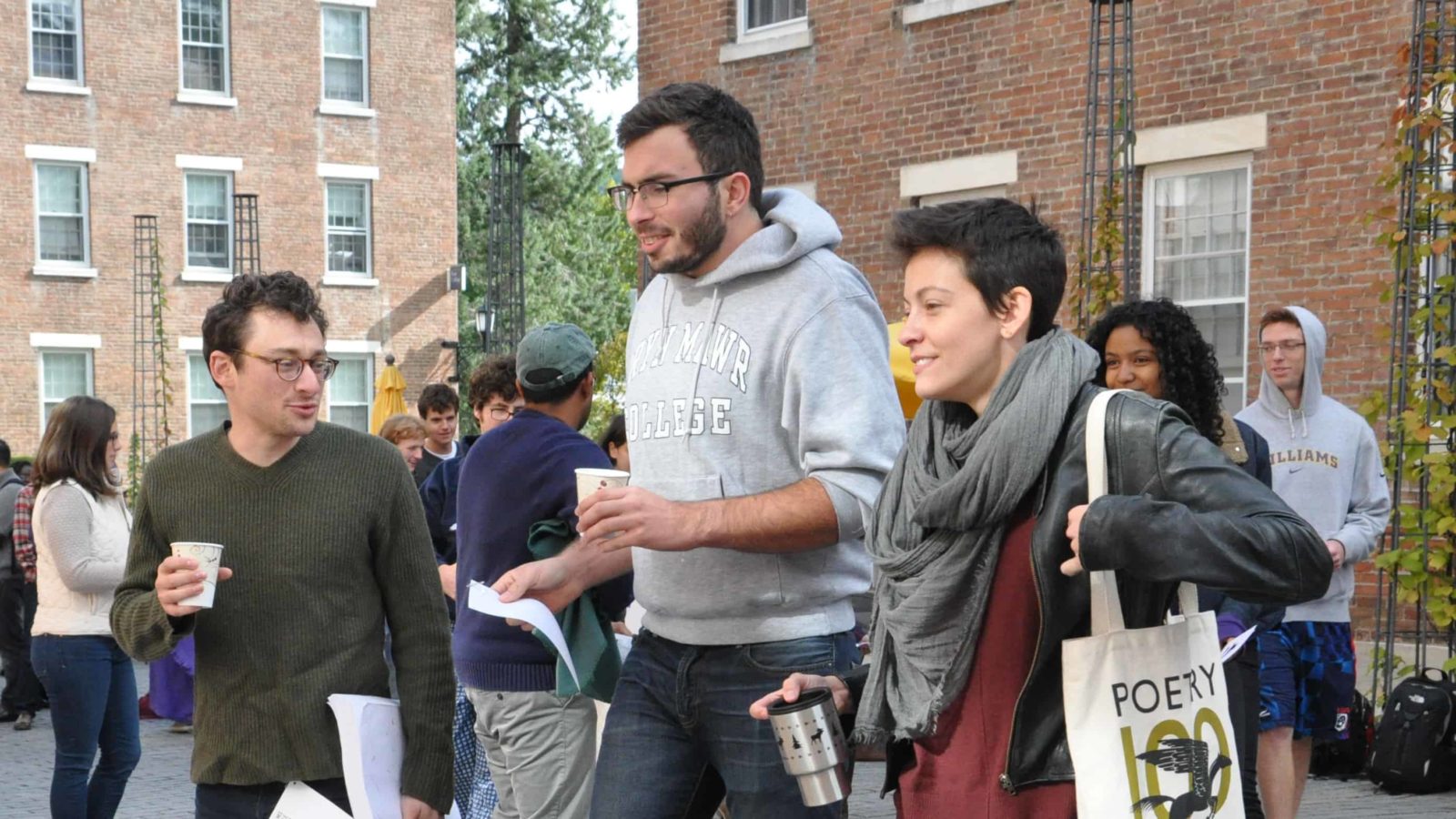In an octagonal room at the Williams College Museum of Art, abstract forms ring the walls like astral bodies, like baby stars half visible in a protoplanetary disk of gas and dust.
After a long break in the pandemic, the museum has reopened with a full round of new shows. Kameelah Janan Rasheed’s solo show, Worshipping at the Altar of Certainty, has transformed the room under the dome, after two years of work and waiting, a few steps from Sweaty Concepts, a look through the collection at contemporary work by women from the 1970s to today.
New exhibits and artists are coming in as the semester gets under way. And themes surface among them — visibility and invisibility, uncertainty and possibility, how people experience and learn.
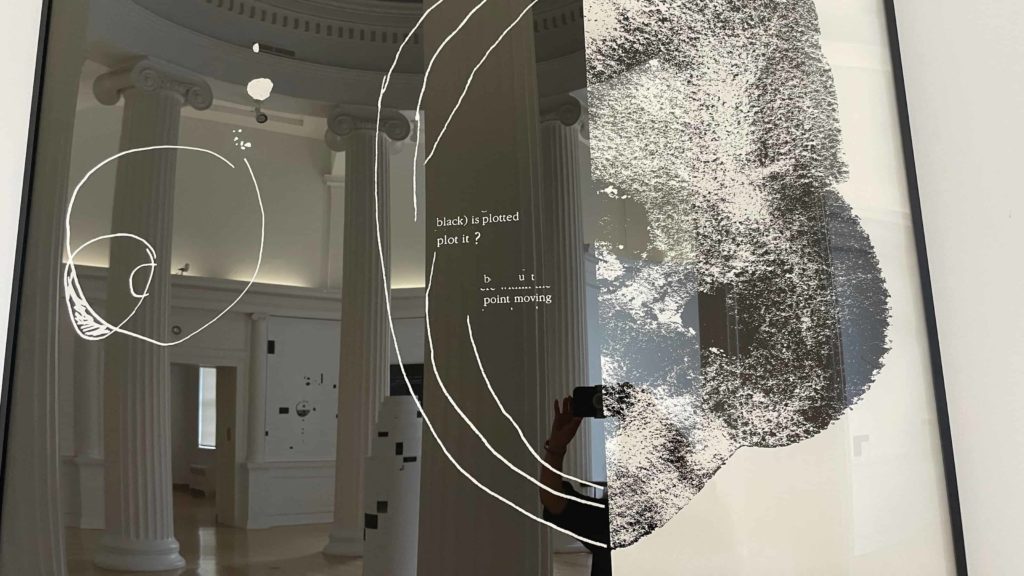
Kameelah Janan Rasheed's panels in text and abstract images reflect the shifting stories in her installation at WCMA.
In many ways, artists are thinking about the challenge of making space for your body where space has not existed, and describing the struggle and effort it takes to be in the world, said Lisa Dorin, deputy director for curatorial affairs and curator of contemporary art at WCMA.
In the octagonal room under the dome, Rasheed has transformed the space to move people outward from the center, toward the margins. A Guggenheim fellow and a nationally acclaimed artist from the Bay Area to Brooklyn, she has work at Mass MoCA as well, in the group show Kissing through a Curtain, exploring the depths and limits of translation.
At WCMA, in the one room that once held the college’s entire library, she walks into the labyrinth of Jorge Luis Borges’ story the Library of Babel, an infinite store of all of the knowledge in the cosmos — to challenge that idea and find possibilities in it.
Words and abstract images line the walls here, some bold and some subtle, drawing people to walk slowly around the room. A pillar sets words at eye-level, spiraling around so that they can form and re-form new sentences depending on where someone comes to them, how they walk and how they read.
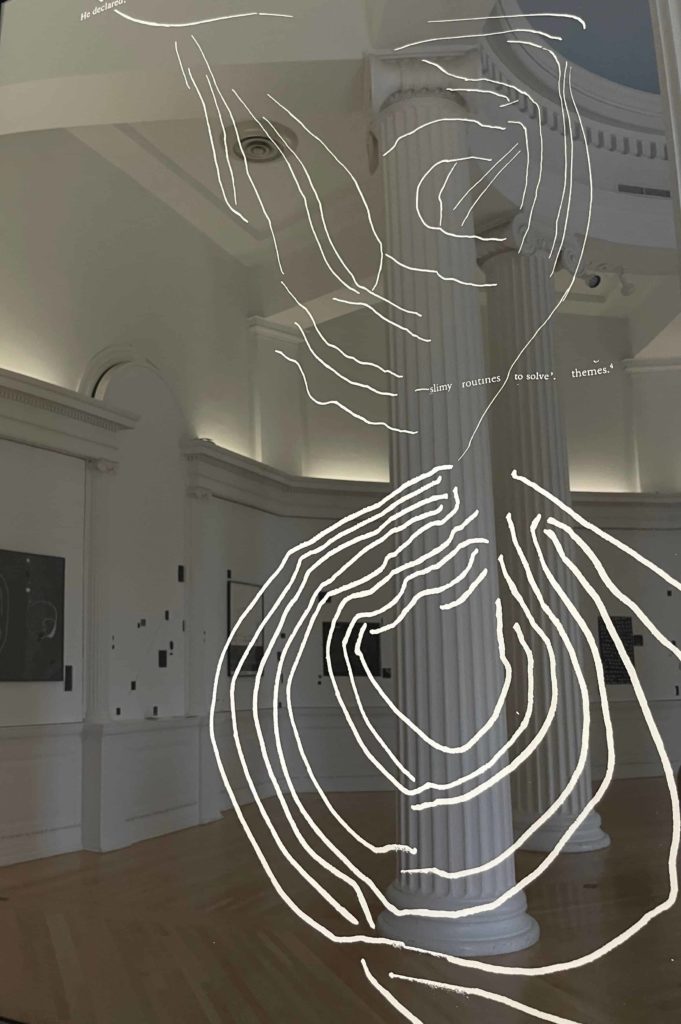
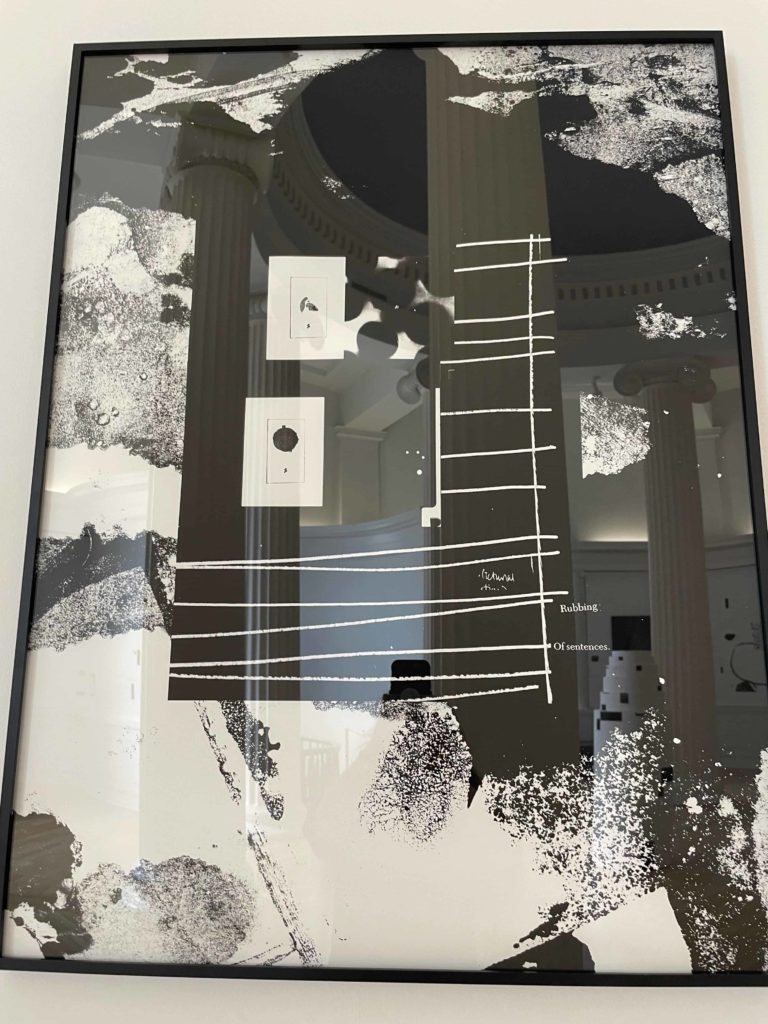
Rasheed began the work before the pandemic, she said, and for her and for her curators, a show exploring knowledge, openness and uncertainty has felt more and more timely in this last year. WCMA has been closed since 2020, and they have brought the show together while they waited for the museum to re-open.
“The ideas we were talking about became coherent and tangible in our daily lives,” said Nidhi Gandhi, a graduate of the Williams Masters program in art who has co-curated the show with her classmates Mallory Cohen, Elyse Mack, and Sinclair Spratley.
What people know and what they are told, what they have learned and have not learned, has become increasingly, visibly, a life-and-death question, she and Mack said:
“(We see) the day-to-day repercussions of what we’re taught for communities in the U.S.”
‘The ways you explore the world should be interdisciplinary, interspecies, and interstellar.’ — Kameelah Janan Rasheed
A library gathers stories, but which stories are preserved, and which are lost? How does a library shape how people learn, and what they learn, and how does their learning shape the knowledge they preserve and share?
Gandhi sees this wide-ranging joy in Rasheed’s practice, as Rasheed gathers ideas and moves freely among them.
“How do you arrive at an idea?” Rasheed asks. “It’s something I think about in all of my work, how do I learn something or make sense of something.”
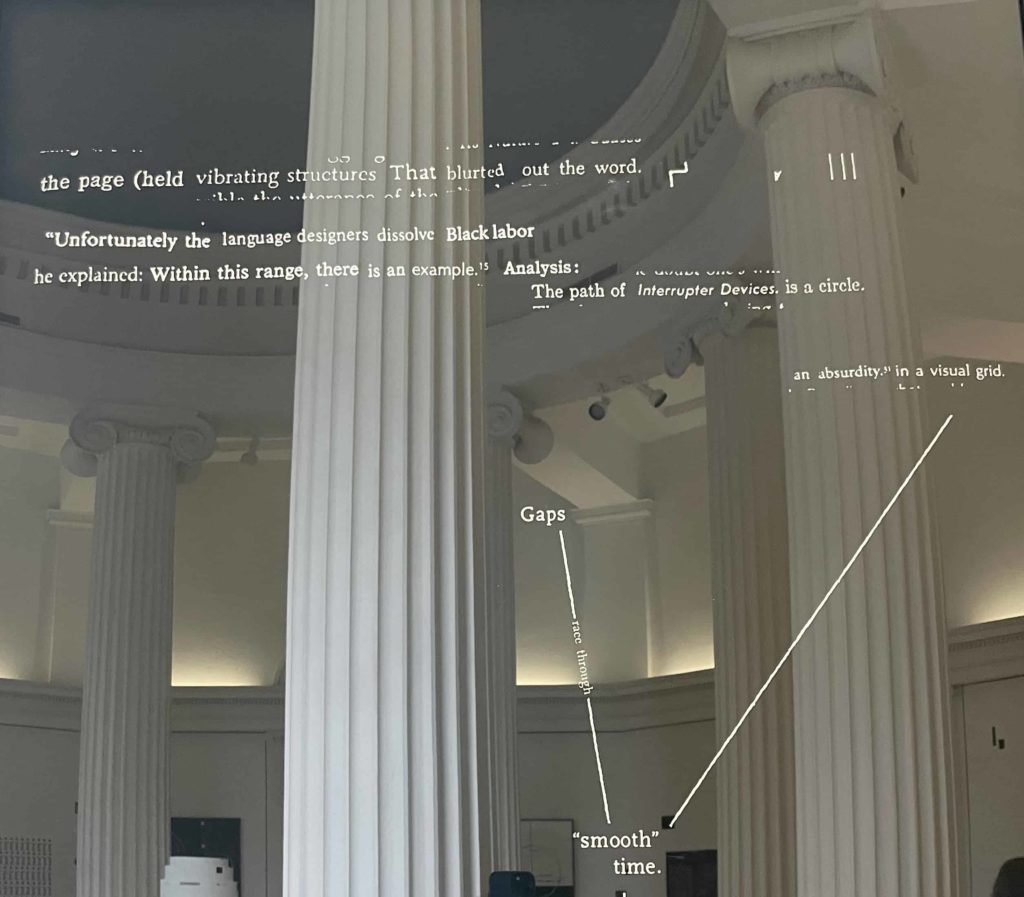
Kameelah Janan Rasheed's panels in text and abstract images reflect the shifting stories in her installation at WCMA.
She quotes from Octavia Butler, who once described having four or five books open at a time, ideas in communion with each other. If Rasheed is interested in the ways communities form, she may want to read about human communities, and she may also want to read about ant colonies and fungal networks.
“The ways you explore the world should be interdisciplinary, interspecies, and interstellar,” she said.
In Borges’ story, the library is so vast that librarians have searched for years without finding a coherent thought.
“In Kameelah’s version of the library,” Gandhi said, “we are creating our own ideas and goals, and there is no end point — we can find infinite meaning and poignancy, and we create that meaning, language, syntax, signification of words.”
‘In Kameelah’s version of the library, we are creating our own ideas and goals, and there is no end point — we can find infinite meaning and poignancy.’ — Nidhi Gandhi
“I think about what exceeds libraries or will never end up in a library because of its form,” Rasheed said.
Libraries are designed to gather words in writing, though some elements of multimedia now and oral histories and digital archives. On the one hand, she sees knowledge lost or not included, and on the other, city and college libraries are not the only ways to share knowledge, and she finds a sense of possibility in paths to building new ways to share and hold onto stories.
“I want to offer … an invitation to wander and wade in the wet,” she writes in thoughts on her website the philosophy behind her art, “to touch and make anew what has not been made solid … to return to the scene of presumed certainty for revision.”
In this show she has left gaps to invite readers’ minds to fill them in, and she has set strong images along the walls. She sees people walking through the room in a circle, like planets around a sun, like pilgrims in meditation around the Kaaba, like men and women in a ring shout, holding African traditions here across the sea and creating a beat with their bodies and calling aloud … like the Sufi idea of a circle, an idea, encompassing all the acts of life.

